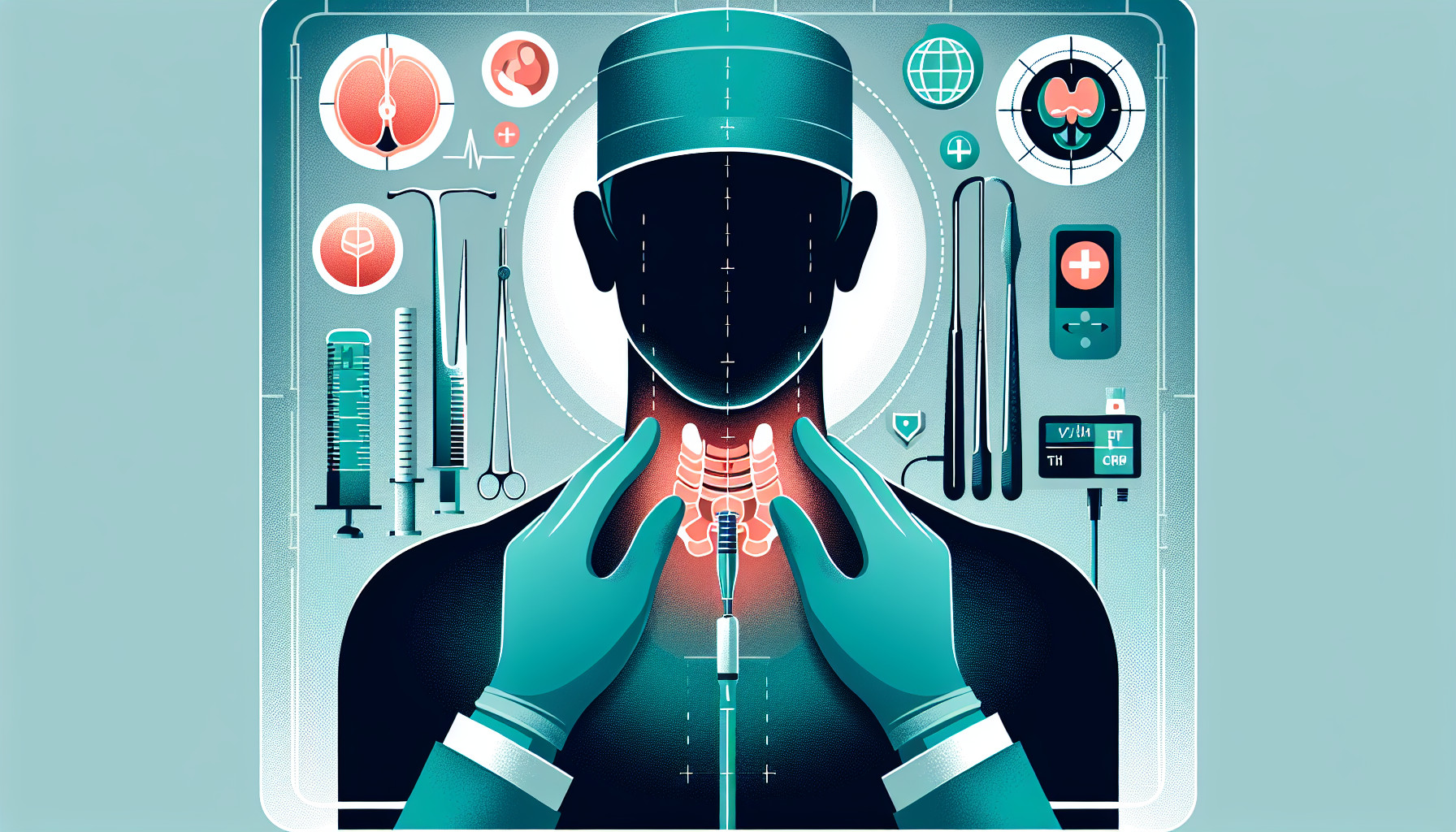Our Summary
This research paper is about a study that was conducted on patients suffering from hyperparathyroidism, a rare disease that affects the body’s calcium, vitamin D, and phosphate levels due to overactive parathyroid glands. The study took place in a single hospital from October 2018 to January 2022. In the study, 47 patients underwent a surgical procedure called parathyroidectomy, which is the removal of the parathyroid glands.
The patients were divided into two groups. The first group consisted of 37 patients with primary hyperparathyroidism, while the second group consisted of 10 patients with renal hyperparathyroidism. Throughout the surgery, the patients’ parathyroid hormone levels were constantly monitored.
The results showed that the hormone levels were within the normal range for the first group both before and after surgery (up to a year later). However, the hormone levels were higher than normal for the second group, though they returned to normal levels 12 months after the surgery.
In conclusion, the surgery combined with hormone monitoring showed positive results. But because hyperparathyroidism is a rare disease, the study only involved a small number of patients. Therefore, the researchers suggest that more long-term studies with more patients are needed in the future.
FAQs
- What is a parathyroidectomy and why is it performed?
- What were the results of the study on patients who underwent parathyroidectomy for hyperparathyroidism?
- Why do researchers suggest that more long-term studies with more patients are needed in the future?
Doctor’s Tip
A helpful tip a doctor might tell a patient about parathyroidectomy is to follow up with regular blood tests to monitor calcium and hormone levels post-surgery. This will help ensure that the surgery was successful in correcting the hormone imbalance and preventing complications. Additionally, it is important for patients to maintain a healthy diet and lifestyle to support overall bone health and calcium metabolism. Regular follow-up appointments with the doctor are also recommended to address any concerns or complications that may arise.
Suitable For
Patients who are typically recommended for parathyroidectomy are those with primary hyperparathyroidism or renal hyperparathyroidism. Primary hyperparathyroidism is the most common cause of hyperparathyroidism and occurs when one or more of the parathyroid glands become overactive, leading to an excess production of parathyroid hormone. Renal hyperparathyroidism, on the other hand, is caused by chronic kidney disease and results in abnormal calcium and phosphate levels in the blood.
Patients with primary hyperparathyroidism may experience symptoms such as fatigue, weakness, bone pain, and kidney stones, while those with renal hyperparathyroidism may have similar symptoms in addition to complications related to their kidney disease. Parathyroidectomy is recommended for these patients to remove the overactive parathyroid gland(s) and restore normal hormone levels in the body.
Overall, patients with hyperparathyroidism who have failed conservative management or who have severe symptoms are typically recommended for parathyroidectomy. It is important for these patients to undergo thorough evaluation and monitoring before and after the surgery to ensure successful outcomes.
Timeline
Before the parathyroidectomy:
- Patients experience symptoms of hyperparathyroidism such as fatigue, weakness, bone pain, kidney stones, and gastrointestinal issues.
- Patients undergo diagnostic tests such as blood tests, urine tests, and imaging studies to confirm the diagnosis of hyperparathyroidism.
- Patients consult with an endocrinologist and a surgeon to discuss treatment options, including parathyroidectomy.
After the parathyroidectomy:
- Patients undergo the surgical procedure, during which the overactive parathyroid glands are removed.
- Patients are monitored closely for any complications during and after the surgery.
- Patients may experience a temporary drop in calcium levels post-surgery, requiring supplementation.
- Patients are followed up with regular blood tests to monitor their hormone levels and ensure they remain within the normal range.
- Patients typically experience improvement in their symptoms, such as increased energy levels, reduced bone pain, and improved kidney function.
What to Ask Your Doctor
What are the potential risks and complications associated with parathyroidectomy?
How long is the recovery process after parathyroidectomy and what can I expect during this time?
Will I need to take any medications or follow a special diet after the surgery?
How will my calcium, vitamin D, and phosphate levels be monitored after the surgery?
What are the chances of the hyperparathyroidism returning after the surgery?
Are there any lifestyle changes I should make to prevent recurrence of hyperparathyroidism?
How will the surgery impact my overall health and quality of life in the long term?
Are there any alternative treatments to parathyroidectomy that I should consider?
How experienced is the surgical team in performing parathyroidectomies?
Can you provide me with more information about the specific type of parathyroidectomy procedure that will be performed, including the potential outcomes and recovery time?
Reference
Authors: Kim SH, Lee SY, Min EA, Hwang YM, Choi YS, Yi JW. Journal: Medicina (Kaunas). 2022 Oct 16;58(10):1464. doi: 10.3390/medicina58101464. PMID: 36295623
